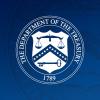Federal Broadband Programs

Biden-Harris Administration Awards More Than $5.7 Million to New Mexico in ‘Internet for All’ Planning Grants
The Department of Commerce’s National Telecommunications and Information Administration (NTIA) announced that New Mexico received its first “Internet for All” grants for deploying high-speed Internet networks and developing digital skills training programs under the Biden-Harris Administration’s Internet for All initiative.

Biden-Harris Administration Awards Nearly $5.7 Million to Kansas in ‘Internet for All’ Planning Grants
The Department of Commerce’s National Telecommunications and Information Administration (NTIA) announced that Kansas received its first “Internet for All” grants for deploying high-speed Internet networks and developing digital skills training programs under the Biden-Harris Administration’s Internet for All initiative.
Here's why the definition of a 'passing' matters for broadband grants
What counts as a fiber passing, anyway? It seems the answer varies slightly by operator, though most consider a passing to be any location which can be connected to fiber running along the main road. A Consolidated representative said passings are locations that are in “close proximity” to its network.
State office may not challenge broadband maps, risking hundreds of millions of federal funds for Texas
Billions of dollars are up for grabs to expand broadband availability across the country. But the Federal Communication Commission maps that will determine where the money goes are inaccurate, according to the Texas comptroller, because internet service providers inflated their coverage areas. The Texas office charged with challenging and improving those maps at the state level says it can’t.
Comcast agents mistakenly reject some poor people who qualify for free Internet
People with low incomes can get free Internet service through Comcast and the Federal Communications Commission's Affordable Connectivity Program (ACP), but signing up is sometimes harder than it should be because of confusion within Comcast's customer service department. The confusion is related to a Comcast rule that makes customers ineligible for Internet Essentials low-income service if they have been a Comcast subscriber in the previous 90 days. That rule and another one related to unpaid bills are not supposed to apply to people who also qualify for the ACP.
Biden-Harris Administration Awards Nearly $9 Million to California in ‘Internet for All’ Planning Grants
The Department of Commerce’s National Telecommunications and Information Administration (NTIA) announced that California received its first “Internet for All” grants for deploying high-speed Internet networks and developing digital skills training programs under the Biden-Harris Administration’s Internet for All initiative. California is receiving $8,998,027 in funding from the Infrastructure Investment and Jobs Act, signed by President Biden, to plan for the deployment and adoption of affordable, equitable, and reliable high-speed Internet service throughout the state.

Treasury Announces Three Additional Capital Projects Fund Awards to Increase Access to Affordable, High-Speed Internet
The US Department of the Treasury announced the approval of broadband projects in three additional states under the American Rescue Plan’s Capital Projects Fund (CPF): Illinois, Indiana, and North Carolina. Together, these states will use their funding to connect over 170,000 homes and businesses to affordable, high-speed internet.
Biden-Harris Administration Awards More Than $5.5 Million to New Hampshire in ‘Internet for All’ Planning Grants
The Department of Commerce’s National Telecommunications and Information Administration (NTIA) announced that New Hampshire received its first “Internet for All” grants for deploying high-speed Internet networks and developing digital skills training programs under the Biden-Harris Administration’s Internet for All initiative. New Hampshire is receiving $5,525,033.51 in funding from the Infrastructure Investment and Jobs Act, signed by President Biden, to plan for the deployment and adoption of affordable, equitable, and reliable high-speed Internet service throughout the state.
Biden-Harris Administration Awards More Than $5.4 Million to Wyoming in ‘Internet for All’ Planning Grants
The Department of Commerce’s National Telecommunications and Information Administration (NTIA) announced that Wyoming received its first “Internet for All” grants for deploying high-speed Internet networks and developing digital skills training programs under the Biden-Harris Administration’s Internet for All initiative. Wyoming is receiving $5,430,005 in funding from the Infrastructure Investment and Jobs Act, signed by President Biden, to plan for the deployment and adoption of affordable, equitable, and reliable high-speed Internet service throughout the state.
Biden-Harris Administration Awards More Than $5.7 Million to Oregon in ‘Internet for All’ Planning Grants
The Department of Commerce’s National Telecommunications and Information Administration (NTIA) announced that Oregon received its first “Internet for All” grants for deploying high-speed Internet networks and developing digital skills training programs under the Biden-Harris Administration’s Internet for All initiative. Oregon is receiving $5,782,193.00 in funding from the Infrastructure Investment and Jobs Act, signed by President Biden, to plan for the deployment and adoption of affordable, equitable, and reliable high-speed Internet service throughout the state.

